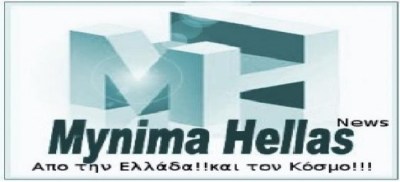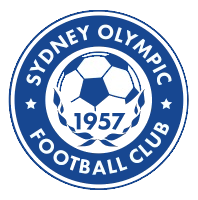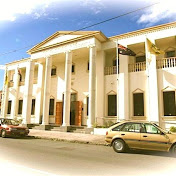
Turkish Nobel laureate Orhan Pamuk barely escaped jail for discussing the Armenian genocide.
ON April 24, 1915, the day before the Anzacs landed at Gallipoli, the Turkish government in Constantinople rounded up hundreds of Armenian artists, intellectuals, academics, priests and community leaders and killed most of them.
At the time there were 15 million Turkish Muslims and about two million Christian Armenians in Turkey (or Anatolia as it was then). The Armenians were better educated and wealthier than most Turks and because of that were envied and hated, so much so that the government instituted a program of ethnic cleansing. The Turks had had practice runs before. Between 1894 and 1896, 200,000 Armenians were massacred by soldiers and armed mobs.
From May to September 1915, up to two million Armenians were killed or expelled from the Ottoman Empire. The adult men were massacred or sent to death camps, while their families were sent on death marches through the desert. They were murdered, raped, drowned, burned alive and left to die of hunger and thirst. Churches, monasteries and schools were destroyed. All material goods were confiscated. Girls were made sex slaves and forced to convert. Up to 1.5 million died.
Since then Turkish apologists have protested that only 600,000 died and that the deportations and massacres were merely unfortunate incidents in a civil war. In An Inconvenient Genocide, Australian lawyer Geoffrey Robertson sifts the evidence and details the reasons he considers the Turkish elimination of the Armenians a crime against humanity, a genocide.
He doesn’t spend much time on the history but presents witness accounts by diplomats, missionaries, journalists, doctors and soldiers. Some of the compelling accounts are by Australian prisoners of war. Even Turkey’s German allies, especially diplomats, were horrified by what was happening and sent voluminous reports back to Berlin.
Turkish law sanctions citizens who ‘‘insult Turkishness’’ by referring to the treatment of Armenians as genocide. Nobel prize-winning writer Orhan Pamuk was charged but his international fame kept him out of jail. This nationalistic hypersensitivity cannot be overestimated. In 2010, the BBC recorded a play I wrote based on the memoirs of a US vice-consul, Leslie Davis, who witnessed deportations, death marches and atrocities. Because Turkish actors were afraid news of their participation would travel back home, they dropped out or acted under assumed names.
Robertson makes it clear that genocide is a matter for judges, not historians. He takes as his guide the International Court of Justice decree that genocide means acts committed with an intent to destroy, in whole or part, a national, ethnic, racial or religious group. In practice this means disrupting social cohesion (murdering leaders and intellectuals), destroying cultural institutions and prohibiting cultural activities, shifting wealth from the persecuted group to privileged nationals, depopulating areas inhabited by a group, interfering with the activities of churches catering to the persecuted group and reducing its numbers by starvation or murder.
This book is a prosecutor’s brief: brilliant, forensic and irrefutable, and on all counts Robertson finds the 1915 Turkish government guilty of genocide. The subtitle, Who Remembers the Armenians?, is a paraphrase of Hitler’s remarks to his generals in 1939, ordering them to show no mercy to the Poles: “Who, after all, speaks today of the annihilation of the Armenians?’’
Robertson is part of a growing global movement to have the Armenian genocide classed as a crime against humanity. Governments in Canada, France, Russia, Sweden and Poland have recognised the genocide, as have 43 of the 50 US states. The British and US governments have refused to do so; Turkey’s pro-Western stance makes it an important ally.
Led by President Recep Tayyip Erdogan, a cynical populist, Turkey is doing all within its power not to confront its own past and also to stop the truth from being heard. This is of course not unusual (witness Japan’s refusal to acknowledge its horrific crimes in World War II and Australia’s deliberate amnesia about its treatment of Aborigines) but the evidence of the genocide is so overwhelming that the Turkish denial of what happened is breathtaking in its immaturity and lack of pity.
In Australia’s case, the NSW parliament recognised the genocide in 2013, but the federal government has not done so. Foreign Minister Julie Bishop has gone so far as to deny it happened. Why is this? Well, the answer is quite simple: blackmail. She is afraid the Turkish government will stop Australians from visiting Gallipoli. She has good reasons for this, given the Turks have banned any member of the NSW parliament from attending this year’s centenary memorial service at Anzac Cove.
An Inconvenient Genocide should be compulsory reading for anyone who knows nothing about the Armenian genocide. It’s also a vivid reminder that we must never forget such crimes against humanity. Very few books are necessary, but this is one.
source:theaustralian.com.au










 Κανένα θηλαστικό δεν ζει όσο η φάλαινα της Γροιλανδίας, ένα από τα πιο ογκώδη κήτη
Κανένα θηλαστικό δεν ζει όσο η φάλαινα της Γροιλανδίας, ένα από τα πιο ογκώδη κήτη








